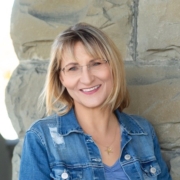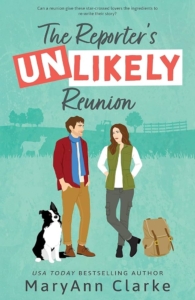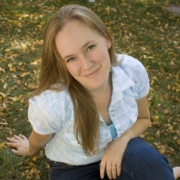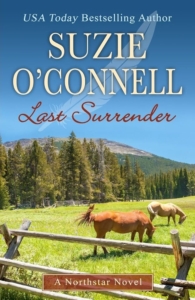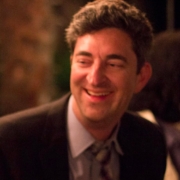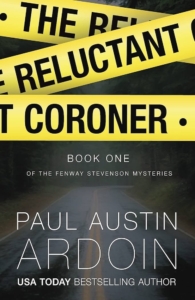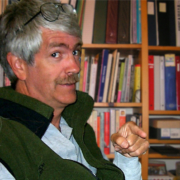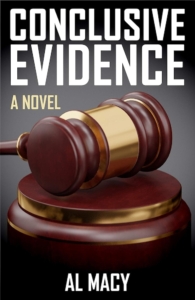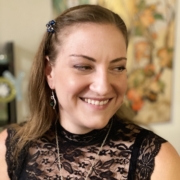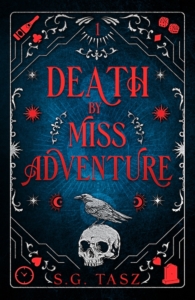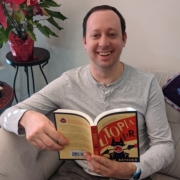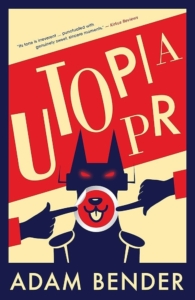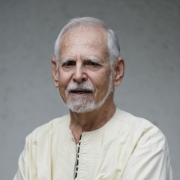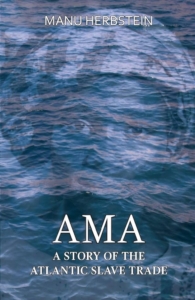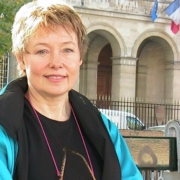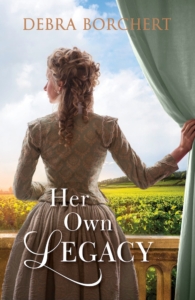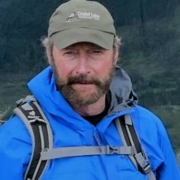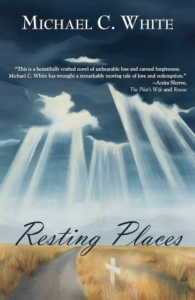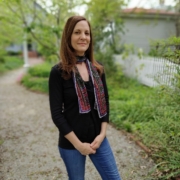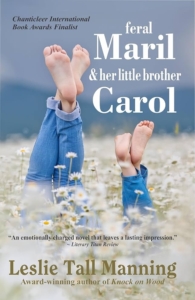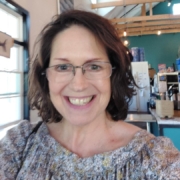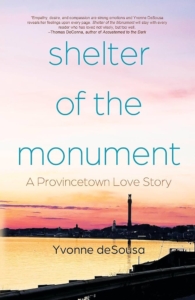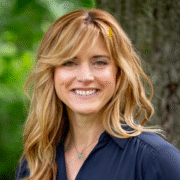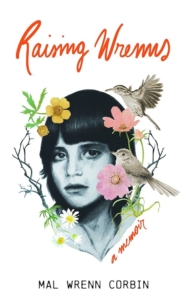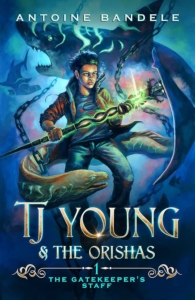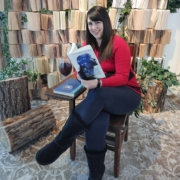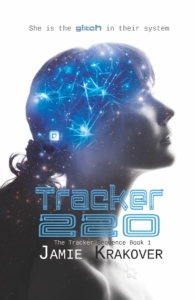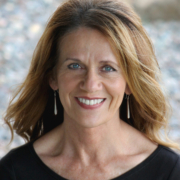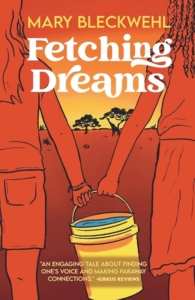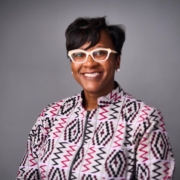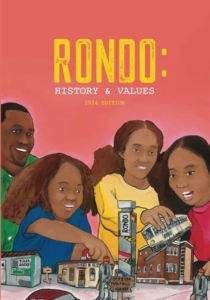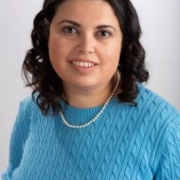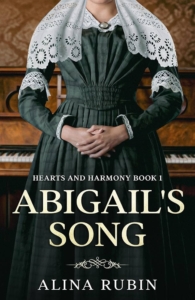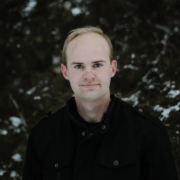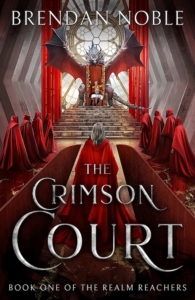2024 IAP Annual Contest: Romance
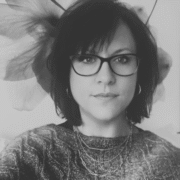
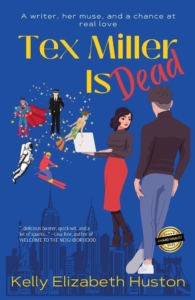
Kelly Elizabeth Huston
Tex Miller Is Dead
Gwinnett County Public Library System, Georgia
Tell us a little bit about yourself.
Kelly Elizabeth Huston writes women-centric, genre-straddling fiction that always includes laughs and a love story. Often there’s heartbreak, a smidge of mystery, moments of suspense, and maybe a dead body… or two. Not always. But sometimes. Above all, she hopes her protagonists are better for it in the end, and she has entertained readers along the way. She lives in Georgia with two college student-sons and her husband—the best three-man cheer squad a writer could have. After spending a few years in the traditional publishing space, Kelly leaped to the indie side without looking back and is eager to dole out her book babies and get them read.
Tell us a little bit about your winning book.
She wants her life back. He wants to live. When a writer and her imaginary muse go head-to-head, real life gets complicated.
Callie Austin, the unknown author of the wildly popular Tex Miller book series, decides twenty-plus years of living in anonymity is enough. Her plan? Kill the beloved Tex Miller. But with a fierce agent, a cut-throat editor, and a beyond-zealous fan base, Callie knows not everyone will be happy. And just wait until Tex hears about it.
At twenty-two, Callie, orphaned and grieving, conjured Tex Miller, a dashing adventurer, a now-adored literary character who makes women swoon and men sit up straighter. Her novel skyrocketed, but Callie was lucky. It was the mid-1990s, pre-internet explosion, and much to her publisher’s chagrin, she insisted she remain anonymous by using a pen name. The enigmatic Calliope Jones was born and cloistered away in one fell swoop, leaving an idolizing public scratching its collective head. Visible only to her, Tex Miller became her constant screwball companion.
Two decades and a dozen books later, on a routine trip to NYC, Callie plans to end the Tex Miller saga, but an up-and-coming streaming service’s offer to turn Callie’s books into an original series may waylay Tex’s demise. Things spiral further when her trusted longtime driver falls ill, and a younger replacement chauffeur catches her eye—and maybe her heart, while Tex goes rogue, unsure he’s down with the new plot twists.
Throw in a dogged gossip blog’s rabid pursuit of ‘the truth’ along with Calliope Jones’s fervent fandom, and the world’s favorite unidentified writer has her hands full.
What made you want to be an author?
It was a fluke, really. I got sick and had zero patience for knitting. Words began to flow and I was hooked.
How have libraries played a role in your indie author journey?
Seeing my books on a library shelf ranked high on my bucket list. As a lifelong library fan, it was one of the biggest thrills when the day came. I hope to have the opportunity to participate in a reader/writer event at a local branch someday.
Do you have any advice for aspiring indie authors?
Take your time. Don’t try to write to the market. Find your “people” and have your work read by better writers. Be a good literary citizen and recognize other authors are not your competition. We could never write books fast enough to keep up with readers’ appetites. There is more than enough room for all of us. There is no “right” way to write a novel.
What does winning this award mean to you?
I hope it will grow my audience. With a background in not-for-profit theater, having art available to all has always been my goal. It educates, entertains, and builds community and today there isn’t much more important than that.
2024 IAP Annual Contest: Mystery/Thrillers
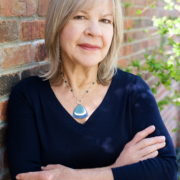
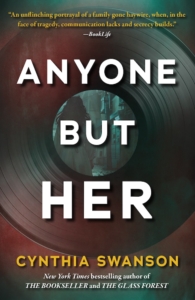
Cynthia Swanson
Anyone But Her
Denver Public Library, Colorado
Tell us a little bit about yourself.
Cynthia Swanson writes psychological thrillers, often using historical settings. Cynthia’s debut novel, The Bookseller, was a New York Times bestseller, an Indie Next selection, the winner of the 2016 WILLA Literary Award for Historical Fiction, and is slated to be a motion picture produced by Julia Roberts. The Bookseller is translated into 18 languages. Cynthia’s second novel, The Glass Forest, was a USA Today bestseller, has been noted in Forbes as being one of “Five Novels With a Remarkably Strong Sense of Place” and is translated into 7 languages. Her third novel, Anyone But Her, won the 2024 Indie Author Project contest in the Mystery/Thriller category. Cynthia is the editor of the anthology Denver Noir, which features dark, morally ambiguous stories set in and around Denver, Colorado, written by 14 notable literary and mystery authors. Denver Noir received the 2023 Colorado Book Award (Anthology). Cynthia lives with her family in Denver.
Tell us a little bit about your winning book.
Set in 1979 and 2004, the psychological thriller Anyone But Her by Cynthia Swanson tells the story of Suzanne—named for the Leonard Cohen song and adored by her mother, Alex, who is killed during a robbery at Alex’s record store when Suzanne is 14. Both as a teen and later in adulthood, Suzanne searches for clues about unresolved circumstances around Alex’s death. But what happens when she discovers what she thought she wanted to know?
What made you want to be an author?
I’ve always been drawn to stories, going back to my childhood. I was that kid huddled under the blankets with a flashlight, reading deep into the night. My mother (also a writer) gifted me my first typewriter at age 7—and since then, I’ve never looked back. I took a slight detour in college, starting out majoring in Architecture, because I’ve always loved design, and I thought I needed to pursue a “practical” career. (I can hear all the architects in the room laughing.) But after a few years, I returned to my first love—writing. While I still love design as a hobby, my work has been focused on the written word ever since.
How have libraries played a role in your indie author journey?
Libraries have been key to my work as both a traditionally published and now indie published author. Since much of my fiction is historical, there’s always a great deal of research to be done. Denver Public Library is my go-to, but my current work-in-progress is set in the Colorado Rocky Mountains, and I’m fortunate to have access to the Grand County Library district—which, like DPL, is fabulous for research and support.
Do you have any advice for aspiring indie authors?
Learn all you can about the process before you publish your first book. Invest in editing and cover design—both will pay off in the form of a quality book. Get to know other indie pubbed authors—it’s a wonderful, supportive community. And enter the IAP contest! Good luck!
What does winning this award mean to you?
I entered Anyone But Her in the Indie Author Project contest in May 2024, when it was in the hands of my proofreader, with an anticipated pub date of September 2024 (which I met). IAP was so supportive when I asked if I could enter a draft version of the book in order to meet the deadline. I was so pleased to learn that the novel had won in the Mystery/Thriller category! Going indie after three traditionally published books has been a huge leap of faith, and winning this contest confirms that I made the right decision, trusting my instinct that the novel was ready for a wide audience.
2024 IAP Annual Contest: SciFi/Fantasy
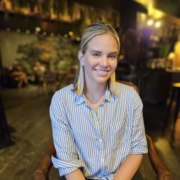
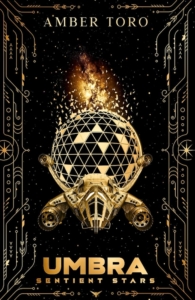
Amber Toro
Umbra
Orem Public Library, Utah
Tell us a little bit about yourself.
I am an award-winning science fiction fantasy author and data scientist at a machine learning startup, working to make the world a better place with tech.
Ever since I was little, I’ve loved stories and had a huge imagination, so it’s only fitting that I now channel that into telling epic fantasy and sci-fi stories. In my stories, you will always find complex characters, epic worlds, and swoon-worthy romance.
I grew up in Seattle with a great love of the outdoors, and now call Utah home. When I’m not writing or coding, you can find me biking, hiking, and camping in the mountains with my amazing partner and two not-so-tiny humans, or curled up with one of my three cats and a good sci-fi/fantasy book.
Tell us a little bit about your winning book.
Umbra is a sci-fi spin on romantasy, set 10,000 years after humanity left in Earth in a time when pilots bond with their sentient starships for life, and a signal in the void threatens to destroy everything.
The future of the human race rests in the hands of a commander exiled for his failures and an alien tech salvager who is stranded on his station when a strange virus disables her living ship.
What made you want to be an author?
I have always loved stories and have been writing since I was a little kid, but it wasn’t until my dad passed away suddenly from a heart attack that I decided to finally write my first novel. The concept behind Umbra had been living in my head for years, and after considering what I would regret not having done if I were to go, I decided it was time to tell it.
How have libraries played a role in your indie author journey?
I always loved the Bellevue library as a kid; it was like one of those gorgeous libraries out of a storybook where you could just lose yourself on the many floors tucked between shelves that appeared to stretch on forever. Growing up, I always had an endless supply of stories to read, and perhaps that limitless breadth explains the eclectic combinations you can find in my own stories now.
As an indie author, I love the idea of being able to get my stories into libraries where readers who wouldn’t have access otherwise are able to read and enjoy them.
Do you have any advice for aspiring indie authors?
Show up for yourself and for your stories. You are the only one who can bring the characters in your head to life, and you never know who else is out there waiting to hear your words. It can all feel very overwhelming, but try to forget the rest. Telling your stories the best way you know how is what you are in control of; the rest will sort itself out, so try not to worry.
What does winning this award mean to you?
Winning this award is such an honor. The Indie Author Project provides such an amazing opportunity for indie authors to have their stories recognized, as well as opening new doors to help us connect with readers through the public library system. For my part, I will do my best to continue to share my stories and uplift fellow authors in the community.
2024 IAP Annual Contest: Historical Fiction
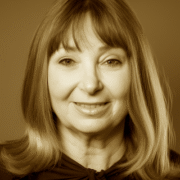
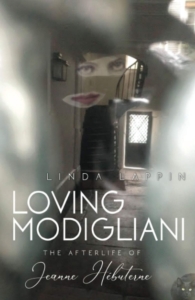
Linda Lappin
Loving Modigliani
Centro Studi Americani Roma, Italy
Tell us a little bit about yourself.
I am originally from Tennessee, but my parents were from the Chicago area. I graduated from Eckerd College in Florida, and received an MFA from the Iowa Writers Workshop. For many years I have lived in Italy, teaching English in Italian universities and working as a literary translator from Italian. Currently, I divide my time between Rome and a medieval village near Viterbo. I write historical fiction about the lives of women writers and artists– though sometimes I add elements of gothic or fantasy, as in Loving Modigliani, where part of the story is told by a ghost.
I love to travel and certain places fire up my creativity. For years I have been researching the links between place and identity, a key issue in all my novels. My nonfiction book, The Soul of Place: Ideas & Exercises for Conjuring the Genius Loci explores how to tap into the soul of place to enhance creativity. I have published four novels with small presses, and all began with a strong connection I have felt to a specific place – whose atmosphere somehow inspires me. It might be a house – like the Prieuré where Katherine Mansfield died, or Modigliani’s studio in Paris — which kindles my imagination — or ruins in a Tuscan landscape, or bizarre sculptures in an Italian garden. Ideas for stories and characters arise and I just have to follow them wherever they lead.
Tell us a little bit about your winning book.
Loving Modigliani is cross-genre historical fiction focusing on Jeanne Hebuterne – wife, muse, and model of the Italian painter Amedeo Modigliani. Theirs was a romantic and tragic love story, ending in their untimely deaths.
Jeanne is mainly remembered as Modigliani’s favorite model. In memoirs later published by their friends, she has been portrayed as bland, brooding, and clinging. Biographers and film directors have dismissed her as a mediocre art student or just one among Modigliani’s many lovers. Her gifts and aspirations as an artist have largely been ignored by scholars and critics. Only within the last twenty years have we come to discover Jeanne Hébuterne the artist, because her work was unavailable to the public before the year 2000.
By chance, I stumbled into museum in Venice where her work was being shown publicly for the first time since her death in 1920, and became fascinated with her life. I set out to write her story in my novel Loving Modigliani: The Afterlife of Jeanne Hébuterne, following her development from schoolgirl to avatar of Montparnasse, and the remarkable rediscovery of her artwork that has occurred in the last two decades.
But how could I write Jeanne’s death as the ending? I was reluctant to write a tragedy – because despite all the pain in her life, there was also much joy: in creating art, in loving Modigliani, in being at the center of an explosive moment in the history of art. The solution came through a photograph I took while peering in the window of the building where Jeanne and Modigliani lived. The photo captured a strange trick of the light and a swirling of dust which seemed to suggest a ghostly presence. So that gave me the idea of having Jeanne tell her story as a ghost.
But I also wanted to write about the journey taken by her artworks from obscurity to the public eye, which has been accompanied at times by forgetfulness and forgeries. To do that I needed to structure my novel on three timelines reaching into our own era and chart Jeanne’s evolution into the present day. Kirkus has said of Loving Modigliani: “Brilliantly researched, imaginative cross-genre historical fiction…The book’s inventive afterlife is as vividly drawn as the streets of Paris.” I think of this book as a love letter to Paris, and a deep map of Montparnasse layered through time.
What made you want to be an author?
I always loved books as a child. Storytelling and poetry came naturally to me, and I was fascinated by my father’s typewriter and started writing stories on it at a very early age. I just never stopped.
How have libraries played a role in your indie author journey?
I grew up in a conservative small town where the only bookstore was the Office Supply store, where they kept few books in stock. The public library, instead, was the door to the universe, with worlds upon worlds available to anybody with a free library card. I spent hours at the library on Saturdays, exploring the stacks, discovering modern French literature and art and 19th century classics. My highschool also had a wonderful librarian, Miss Earnhardt, always full of thoughtful suggestions, steering students to books that would open their minds. I have never forgotten her. If I am a writer today, it is surely partly thanks to her, as some of the books she suggested shaped my world view — like “Man and His Symbols” – an easy introduction to CG Jung, or books by the philosopher Alan Watts. Unfortunately, in Italy where I live now, there are few public libraries like those back home, where you can browse through the stacks, or have opportunities to meet writers or join a book club. They are mostly places for solitary research and the preservation of documents from the past — that’s important too, of course. But I miss the little communities libraries create.
Do you have any advice for aspiring indie authors?
Don’t give up. Try to figure out why you want to write and what it really means to you, then do your best in every sentence.
What does winning this award mean to you?
I was thrilled and honored by the news. It’s so hard for Indie and small press titles to make their way in the world. Writing is a solitary occupation and writers need supportive communities. Books flash for a few moments when they are published, and then sink out of sight. The Indie Author Project will help give our books a new home and a new life.
2024 IAP Annual Contest: General/Contemporary Fiction

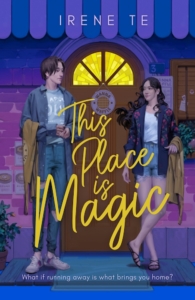
Irene Te
This Place Is Magic
Manvel Library, Texas
Tell us a little bit about yourself.
I write contemporary fiction with a cozy vibe, lots of humor, and a little bit of romance! My debut novel, This Place is Magic, was recently awarded the Grand Prize in the 32nd Annual Writer’s Digest Self-Published Book Awards. I’ve been writing since I was very young; I’ve always loved books, reading, and writing. I do tend to write the stories I enjoy reading, and I read pretty widely so I’m sure you’ll see me in other genres in the future!
When I’m not writing, I work as a freelance curriculum and instructional designer. This sounds complicated but really just means that I create learning materials such as worksheets and those super exciting compliance training courses you have to take at work! As a former elementary school teacher, I love that I can continue to serve educators and students while also having the time to write books. Some of my favorite hobbies include video games, keeping up with the K-pop gossip, and getting myself another cup of coffee.
Tell us a little bit about your winning book.
This Place is Magic is the first in a duology about a disillusioned K-pop idol, one missed flight, and the (somewhat confused) family who finds him outside their waffle restaurant. But it’s also about brotherhood, self discovery, and being brave enough to pursue what makes you happy. Readers describe it as cozy, comforting, funny, and warm. It’s my love letter to K-pop, which has been a source of entertainment and joy for me since I was a teenager. At the same time, I wrote it as a reminder that your favorite idols are human beings. They have emotions, fears, and struggles, and they’re moving through life one day at a time just like you.
What made you want to be an author?
I’ve been a voracious reader since Kindergarten, and I think it was a natural progression from there. I wanted to be that person creating worlds and characters, telling stories, and perhaps reaching other readers just like me.
How have libraries played a role in your indie author journey?
I absolutely wanted to live at the library when I was a kid— I was the one hiding under a table and plotting how to stay there permanently— so it’s been amazing to have This Place is Magic available at libraries! I’ve had kind readers requesting the book at their local library and it honestly means so much to me that someone might stumble upon it while browsing the shelves for their next read. This is how I’ve found many of my favorite books. In the future, I would love to actually visit my books at the library and take a million embarrassing photos with them! None of my local libraries carry it right now, but it’s a major goal for me in the new year.
Do you have any advice for aspiring indie authors?
My go-to advice is just to keep learning. Be open to the idea that you still have more to learn, that you can still improve, and that there are still new things about writing that you haven’t figured out yet. Learn from your favorite authors, learn from books you read (whether you loved them or not!), and learn about yourself along the way.
The shifting nature of the writing process is one reason why I keep coming back to it. Every project is like a new puzzle to solve, and it’s also another opportunity to learn. You will make mistakes and have rough days as an indie author and as a writer in general, but framing these as chances to learn and grow can help you through the journey.
What does winning this award mean to you?
I don’t even really have words for it! As mentioned above, libraries have been important to me since childhood. They were my safe haven and my happy place, and they still are. To have won an award from a competition judged by librarians is an incredible feeling!
2024 IAP Annual Contest: Memoir
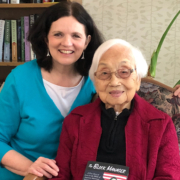
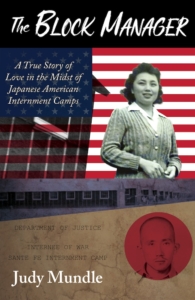
Judy Mundle
The Block Manager
St. Louis Public Library, Missouri
Tell us a little bit about yourself.
Anyone who knows me understands how I love to tell a story. Telling stories gives us a way to touch the souls of others. Truly connecting with people, and hearing about their lives is my passion. It is my hope and dream to know my book is meaningful to others.
Tell us a little bit about your winning book.
Many books have been published detailing all aspects of World War II. However, very few books tell the story of America imprisoning its own people of Japanese ancestry in internment camps during the war. My book tells the story of a twenty-two year old Japanese American girl, who found herself as a block manager mandated by the US government during the war. Her story takes the reader through her nearly four years living in three different camps, getting married, having a baby, only to face the agonizing choice of joining her husband in war torn Japan or remain in the US at the conclusion of the war. The prejudice she encountered over and over again, never destroyed her love for her country. To me, her story is one for the ages.
What made you want to be an author?
When I was just nineteen years old, I met my lifelong friend, Jan. She was Japanese; I was not. She was the age of my own mother. It was the honor of my lifetime that she trusted me to tell her story, which I began when she was ninety-five years old. Even though I hadn’t published anything previously, I embarked on the journey to tell her story as best I could. We shared many intimate moments together, as well as many tears, reliving her life through the World War II years and thereafter.
How have libraries played a role in your indie author journey?
My book is part of the collection of larger libraries in my hometown area, such as St. Louis City Library, St. Louis County Library, as well as many regional and local libraries. I have heard from many about waiting lists to check out my book, in multiple libraries.
Do you have any advice for aspiring indie authors?
Find your passion. Do your research to the extent you can. Look for the feeling as to what is happening in the story. Trust your gut instincts. Remember the first line of the book is the most important. Watch out for repeating words or phrases. When you begin writing, work from an outline, but let it all flow. It is important to get it all written- editing follow up comes later. Don’t be afraid to ask for help. Try to keep a thick skin when you get constructive criticism. Keep a positive attitude no matter what happens, as we all encounter stumbling blocks. GO FOR IT!
What does winning this award mean to you?
To say I would be humbled is an understatement. For me, the story is powerful and historic as it tells an important piece of our American history. But also, it is personal, to tell the story of a truly remarkable woman who dealt with unimaginable challenges, over and over again in her life. Through it all, she never was bitter or resentful of what she endured. My little role in this book was just putting it to words, so it would never be forgotten.
2024 IAP Annual Contest: Young Adult
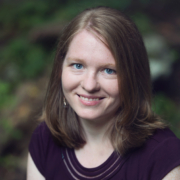
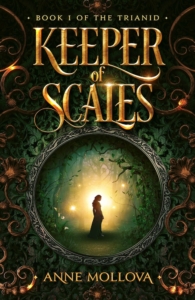
Anne Mollova
Keeper of Scales
Shaler North Hills Library, Pennsylvania
Tell us a little bit about yourself.
I’m a young adult fantasy author who has loved devouring stories of magic and adventure my whole life. It didn’t take long for the itch to write my own stories to set in, but ironically, I’m an English major dropout. After one semester of carrying a double major, I decided to drop the English degree in favor of delving more deeply into music (my other love), which became my first official career.
I had lots of adventures as a violinist (all stories for another day), and worked for a few years in arts management, but through it all, I still harbored the secret desire to write fantasy books. When I became a mom and was less inclined to be away performing, I finally gave myself the time to pursue writing with more focus, and once I discovered indie publishing, I never looked back.
When I’m not writing, I love playing music, spending time in nature, reading, and knitting. I still keep an eye out for faeries, and haven’t yet accepted the fact that I cannot have a pet baby dragon.
Tell us a little bit about your winning book.
Keeper of Scales is the first book of The Trianid Trilogy. It follows the story of Alyen, a young woman who is quickly developing the Sight: a gift that allows her to see the faerie realm. But while the emergence of the Sight would usually be a cause for celebration and an apprenticeship with the powerful Keeper of Scales, for Alyen–the crown princess of Dúramair–it spells disaster. Certain that another candidate with the Sight will come forward, she keeps her gift a secret. But when the sudden reappearance of dark magic in Dúramair triggers an ancient prophecy, she is forced to make a choice that could determine the fate of her kingdom.
As darkness takes hold, Alyen finds herself thrown into a quest for a legendary weapon that will be Dúramair’s last hope for victory in a looming war. Accompanied by a warrior apprentice, an assassin with a dark past, and a monk of questionable sanity, Alyen struggles to master her growing powers, knowing that if she fails, she risks destroying everything and everyone she loves.
What made you want to be an author?
That’s a good question, because the goal of being an author has been with me for as long as I can remember. My parents are huge bibliophiles, so my childhood was filled with books and a love of reading, and I’m sure that played a role. I discovered very early on the joys of sinking into a different world, of being taken on an adventure through words alone, and I find the idea of creating that experience for others tremendously exciting.
I think that books can also play a significant role in our growth as humans in ways I strive to be a part of. As an adolescent navigating the choppy waters of middle and high school, I often found comfort or wisdom in reading the right words from the right book that seemed to find me at just the right time. This has continued into adulthood and is something I cherish about reading to this day. The hope that my stories might one day provide a place where other young people (or adults!) can also feel seen and find acceptance, guidance, or simply delight, is a big reason that I write and why I love what I do.
And finally, I just love being an indie author! I love writing the stories, and I also love taking those stories and turning them into beautiful books, connecting with readers, and dreaming up future projects. It’s truly my ideal job, and I love every minute of it.
How have libraries played a role in your indie author journey?
Libraries have always been special places to me. As a child, our local library was where I first encountered the work of one of my favorite authors, Tamora Pierce, which introduced me to the world of young adult fantasy. I fell in love with the genre and knew very early on that those were the kinds of stories I wanted to write. Without the library giving me access to that kind of inspiration, who knows how or if I would have discovered the passion that became such a big part of my life? Now, as a fantasy author myself, I’m so happy knowing that my stories can reach the next generation of young people searching their own library for a new world to sink into. The value that libraries bring to communities cannot be overstated!
Do you have any advice for aspiring indie authors?
My advice would be first and foremost to cultivate the habit of just getting the words down. I spent far too long thinking I would write when I had more time, when the mood was right, when I had the perfect setup, or once I’d “discovered my voice.” The result was a lot of blank pages and not much else. Once I gave that all up and started writing at the bus stop on the way to work, at the deli on my lunch break, when I wasn’t at all in the mood, and when I had no idea what I was doing, then the story got written, and I had something to work with. So, step one, develop your own writing habit.
My other bit of advice is to learn as much as possible about the indie publishing industry before you jump into actually publishing your work. The indie author community is so open and supportive and there is so much information available in books, podcasts, social media communities, and more. The time I spent learning from authors farther down the road than I has been invaluable in teaching me how write, produce, and publish a professional book that readers will love.
What does winning this award mean to you?
Winning this award is such a milestone in my career. Writing and indie publishing is often a largely solitary endeavor, and it can be easy for authors to second guess the quality and value of their work. Not only did this award give me an enormous boost in validation personally, it also signals quality to readers who have more books than ever before to choose between. I am deeply grateful for the honor of receiving this award, and it spurs me on to create even better stories for my readers for many years to come.
2024 Minnesota Author Project Contest
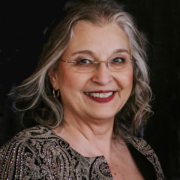
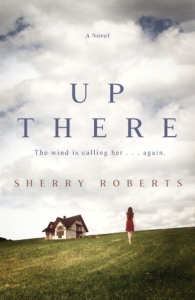
Sherry Roberts
Up There
Dakota County Library
Tell us a little bit about yourself.
I’m from small-town Missouri, where people loved their children and their beer. I was the first in my family to go to college.
I’m from my grandparents’ farm, where hearty Grandma twisted the heads off chickens with her bare hands while gentle Grandpa smiled and rocked.
I’m from a mother who survived school bullies and Catholic nuns screaming at her. I’m from a dreamer father who designed a wall system to save the world’s energy.
I’m from the laughter of grandchildren, the comfort of daughters who give good hugs, and the loving energy of a husband who never stops and never lets me stop. Thank goodness.
I’m from chocolate, hummingbirds, yoga, disc (not frisbee) golf, reading on the porch with the windows open, jigsaw puzzles, walks in cold Minnesota winters and long summer evenings.
I’m from words that follow me into the night. Words that must be put down gently, whether spawned of understanding or rage. Words framed in award-winning contemporary fiction, cozy mysteries, and thoughtful essays. Words I give to you.
Tell us a little bit about your winning book.
A captivating blend of magical realism, Up There explores love, small-town life, the environment, and one woman’s quest to find herself. It is the story of Ariel Lee, who comes from a long line of women who can ride the wind.
Born with the gift of flight, Ariel Lee is attuned to changes in the natural world. The wind speaks to her and helps her secretly ride the skies above the family farm in Cosette, Minnesota—but it also causes her trouble. Fearing she will cause harm with her special gift, Ariel rejects the call of the wind, losing her connection not only with the world of Up There but with herself.
Years later, as a journalist focused on environmental issues, she is drawn back to Cosette to attend her mother’s wedding. There she finds the wind—and a storm of decisions—waiting for her. In her grandmother’s journal, Ariel discovers new and frightening depths to her wind-walking legacy. Can she overcome her fear to reach for her destiny? Will she rediscover her place in this world of wind and sky in time to save herself, her town, and the man she loves?
What made you want to be an author?
I have a journalism degree from the University of Missouri and worked in newspapers and magazines in Missouri, Vermont, and North Carolina. Nonfiction came easily to me, but in my off hours, my head was always in a novel.
I loved stories and wanted to create my own. But I found nonfiction writing and reporting on events was far different from dreaming up my own adventures. As a fiction writer, I was stuck for a long time, and that became the inadvertent inspiration for my first book, Maud’s House. In that novel, blocked artist Maud Calhoun loses and finds her creativity. For my second book, Book of Mercy, I tapped into fire. Mercy, which features a dyslexic woman who fights a North Carolina town banning books, is a scream against censorship.
When I moved to Minnesota twenty years ago, I still itched to write fiction but wasn’t sure how to do it. Where would I find my inspiration or fire this time? I began reading mysteries; Minnesota is a hotbed for mystery writing. I decided to try writing mysteries and produced three Minnesota mysteries: Down Dog Diary, Warrior’s Revenge, and Crow Calling. They follow the adventures of yoga teacher Maya Skye, who fights crime as she seeks enlightenment.
In the last whodunit in that series, Crow Calling, a new note crept into my work: the topic of environmentalism. That note fueled the embers that burst into flame in my contemporary novel, Up There. I wanted to write about environmentalism but from a personal angle, from the perspective of a woman who not only reported on climate change but felt it. In the end, I rewrote Up There nearly ten times, with each draft forcing myself to step down from the climate change soapbox and into the personal struggles of Ariel Lee in a changing world.
I still write nonfiction in the form of essays on various topics from censorship to holiday experiences. My essays can be found at The Hearth: hearth.sherry-roberts.com. I also write short fiction. I have contributed short stories to national publications and anthologies including Saint Paul Almanac, Mystery Magazine, Minnesota Not So Nice, Dark Side of the Loon, and It Was a Dark and Stormy Night—Dontcha Know.
How have libraries played a role in your indie author journey?
As a child, I peddled down the streets of my small Missouri town with a bent bicycle basket full of library books. I wore a path to our town’s Quonset hut library building. It wasn’t pretty on the outside, but it was beautiful inside.
In my research for Book of Mercy, I talked to librarians across the country who were facing book banning in their towns. I know librarians are working every day to deliver the books children and adults need and want. I really believe librarians are on the front line for preserving our freedoms.
And one of those freedoms is to be an indie author. I am grateful for libraries and their embrace of all literature, including indie. They help me bring my work to new audiences, and that exposure is invaluable.
Do you have any advice for aspiring indie authors?
Every writer wonders: Is my writing good enough? Is this book truly finished and ready for prime time? Indie authors don’t have agents, editors, and publishers to send them back to the drawing board or pat them on the back and hand them a glass of champagne. So, how does the lone indie author cope?
The first step is to write. Write every day with joy. Write without worrying about what anyone will think of you or your work.
The next step: While you are pouring out your soul, find a writing critique group. These are fellow writers who will listen to your story, help you hone phrases, point out plot holes, and offer ideas when you’ve written yourself into a corner. When you find such a group, be sure to reciprocate, giving the work of others proper and kind attention. To get the most from and give the most to a critique group, always be honest, courteous, and encouraging. Leave your ego at the door.
My writing critique group has been together for more than twenty years. We are friends who share a love of the written word. Find your kindred spirits. It will be worth it. One day, after years of work and camaraderie, the group may say, “Your cake is baked. It’s ready for the world.” They might even hand you a glass of champagne. No book comes to life by itself.
What does winning this award mean to you?
I want millions of readers to meet Ariel Lee of Up There and enjoy her as much as I have. Winning the Minnesota Indie Author Project takes me a little closer to that goal. Indie books often do not get the press and publicity that traditionally published books enjoy. (Many publications refuse to review indie books.) Indie authors are alone in our writing, publishing, and distribution. So being recognized by the Indie Author Project and by the Minnesota Libraries Association is an honor I can’t describe—without getting a bit teary. This award has made me feel appreciated and less alone, and I am grateful for that.
2024 Illinois Author Project Contest
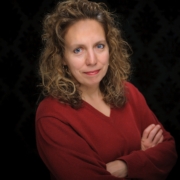
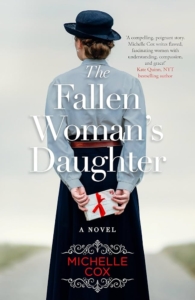
Michelle Cox
The Fallen Woman’s Daughter
Grayslake Area Public Library
Tell us a little bit about yourself.
I live in the Chicago suburbs, but I grew up on a farm in a small town on the Illinois/Iowa/Wisconsin border. I was a shy kid who loved to read and listen to stories about the past. While all the other kids were running around outside playing hide-and-seek, I was the one sitting around at family parties listening to the elder relatives tell stories about life on the farm back in “the old days.” I was fascinated by these stories. I loved old movies, old magazines, old tv shows, and even big band music, which still has the power to bring me to tears. That’s not normal! So, I seemed destined, even from a young age, to write about the past.
Tell us a little bit about your winning book.
The Fallen Woman’s Daughter is based on a true story I heard while working in a nursing home on Chicago’s Northwest side in the early 1990s.
Much of what happened in this book really did happen.
Here’s what Kate Quinn, NYT best-selling author says about it:
“THE FALLEN WOMAN’S DAUGHTER is a compelling, poignant story of mothers, sisters, and daughters spanning three generations from the roaring twenties to the swinging sixties. Starstruck Gertie yearns to escape the dreary mining town of her youth, but a hasty marriage only leaves her a desperate young mother—and when her daughters Nora and Patsy are torn away and sent to a girls’ home, they learn to rely on no one but each other. By the time Gertie comes back into their life eager to make amends, Patsy’s wildness and Nora’s bitterness are ingrained, changing the lives of all three women as war envelops the world and daughters become mothers in turn. Michelle Cox writes flawed, fascinating women with understanding, compassion, and grace—I rooted for them with every turn of the page!”
What made you want to be an author?
I’ve always been a very creative person, even as a child, and was always looking for ways to express it, though I don’t think I was fully conscious of that.
In high school, I started thinking about becoming a writer, though I also seriously considered pursuing a career in medicine. I finally decided that a writing career sounded harder than becoming a doctor, so I pursued that for several years before realizing that I needed to stop running from my true passion, which was, indeed, literature.
So, I changed direction and got a Lit degree, but I still didn’t have the courage to write, though I continued to pursue other creative avenues. Finally, in 2012, a block of time opened up for me, and I decided that it was now or never.
I had no intention of publishing a book or having any kind of writing career, but I decided to try and write a novel. The challenge was simply to see if I could sit in a chair long enough to write a book. Turns out, I could. From there, people encouraged me to try to get it published, which sort of threw me off guard. My intention was not to publish, but having come this far, and at the encouragement of my early readers, I decided to give it a try. One thing led to another, and, well, here I am.
How have libraries played a role in your indie author journey?
Libraries were always important to me, especially as a child. On the last day of school each year, my school librarian, Sr. Madeline, would allow me to take home as big of a stack of books as I could carry on the bus to last me through the long summer weeks. She didn’t even require me to officially check them out; she just trusted that I would safely return them in the fall. I felt immensely special. She allowed me to select whatever I wanted, but she guided me to a few classics, which to this day, have remained in my heart.
As an author, libraries have likewise been a huge help on my journey. Several years ago, I did a big library giveaway in which I donated over 200 books to libraries across the country. I asked my readers to nominate their favorite local library to win copies of my books, and I was overwhelmed by the response I got. People love libraries!! It was very moving and inspiring to hear from readers and librarians alike who had such wonderful things to say about their libraries and who were so grateful for the books.
Libraries have also been important in giving new authors, like me, a chance to speak about my books, and I am particularly grateful to library book clubs who have selected my books to read and discuss. I’ve often been invited, in person or over zoom, to the discussions, and these library clubs have proven to be the most enjoyable groups to talk to, as they are very excited and engaged about the books.
Do you have any advice for aspiring indie authors?
Try to write every single day. Writing each day builds your mental muscle and discipline, which is really important in getting to the end of the book. It’s like exercise—you have to do it every day to see some kind of result, whether you feel like it or not! Remember—you can’t edit a blank page. This is a marathon, not a sprint!
What does winning this award mean to you?
It’s really a dream come true, to be honest.
I love libraries for what they offer the community. Librarians, like teachers and nurses and social workers, are unsung heroes. I was blessed as a child to have a librarian who cared enough to send a little farm girl home with a stack of books for the summer. I’d like to think this was a key component in my becoming an author myself, and who knows how many other authors or potential authors will surface because of the encouragement and opportunities offered by local libraries all around the country.
I’m incredibly honored to have received this nomination.

